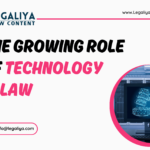The integration of artificial intelligence for law firms is revolutionizing the legal industry, offering unprecedented efficiency and capabilities that are reshaping the way legal services are delivered. This article explores how AI is being utilized in law firms and the profound impact it is having on the profession.
The role of AI in modern law firms
Integrating of AI in law firms can be seen in several fronts such as in the research process, document management, client management and in the predictive analytics. It should be noted that AI is being used by law firms in improving service delivery, efficiency, and cutting down on costs and this puts them in a better standing compared to their competitors.
Legal research and e-Discovery
Most of the AI-based tools incorporated in the legal domain to help lawyers or paralegals search for evidence and information uses sophisticated algorithms and natural language processing techniques to search and analyze evidence and information within the shortest time possible. This not only helps reduce the time taken to conduct the research but at the end results in more thorough analysis hence helping the lawyers get information that they might have overlooked due to time constraints or resulting from a manual search.
With regard to e-Discovery, AI helps in reducing the ad hoc filtering of ESI making the identification of the case relevant documents easier and faster.
Document management and automation
A lot of gain is made by utilizing AI in managing documents in law firms because tasks like drafting and reviewing very brief documents turn out to be routine activities. AI cut down the time significantly, as it scans, categorizes, searches pattern and extracts the relevant part of the document from a large pile of documents.
These technologies also help in preparation of legal documents by suggesting wording, tone and reference to current legislation and thus, maintain coherency across the legal writing.
Client interactions and case analysis
AI improves the situations with clients because first conversations can be made by chatbots and virtual assistants which give clients an answer in a matter of minutes to simple questions, thus relieving lawyers of numerous similar requests.
In addition, case analysis and outcome prognosis along with case management approaches are employed with the help of AI applications based on historical datasets and their trends.
Challenges and ethical considerations
Similar to what was said above, it is worth acknowledging that although AI has many advantages, it also has the following drawbacks: ethical issues, concern for the safety of personal data, and matters relating to the accuracy of AI-derived information. These are some of the challenges that legal professionals have to face while practicing in law firms since the objective is to maintain the credibility of the profession as well as the privacy of clients.
Furthermore, the use of AI in legal contexts needs to be controlled whereby the ability of checking errant results is done subject to certain checks while there is the potential of AI-based systems producing incorrect or even fake legal content.
Advanced outlook
Looking at the new advancements, AI in law firms appears bright with the prognosis of constant innovations set to avail even advanced solutions that could even bring more efficiency in the processing of complex legal assignments and also in development of decision making. It should therefore be expected that with the advancements in the adoption of AI technologies, the landscape for the delivery of legal services will be altered in a way that will establish access, speed and possibly cost as key drivers meaning that the advancements of the legal profession is indeed one that is pegged on AI technologies.
Overall, those law firms that have adopted the use of AI are well positioned for increased productivity, accuracy and client satisfaction signifying a new paradigm within law firms towards increased adoption of technology. Thus, as these technologies advance, it is inconceivable for them not to become standard assets in any legal practice.



I’m not that much of a internet reader to be honest but your blogs really nice, keep it up! I’ll go ahead and bookmark your website to come back later. All the best